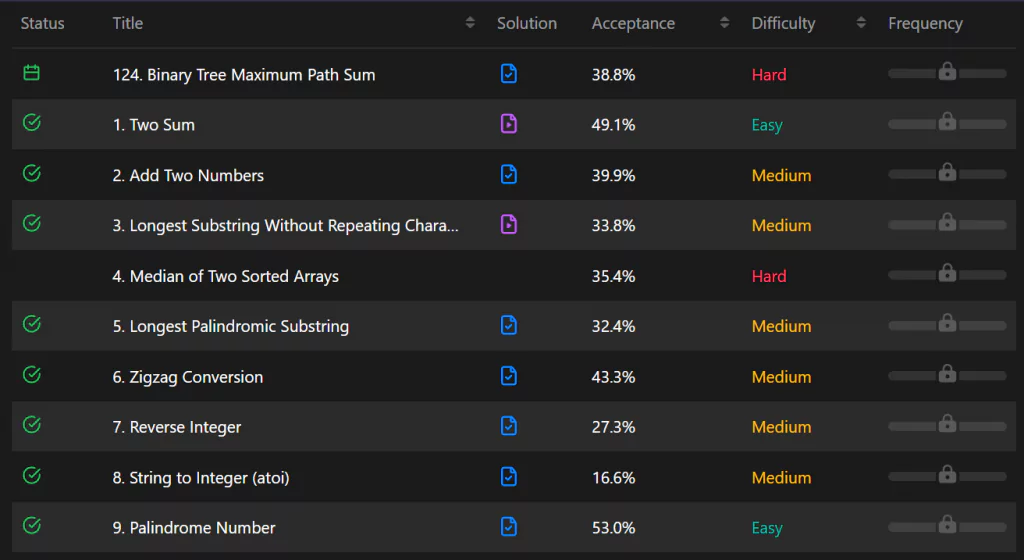
As the popularity of coding platform LeetCode surges, the coding community is abuzz with mixed emotions. While some enthusiasts diligently grind through coding puzzles, others seem less than thrilled.

✅ AI Essay Writer ✅ AI Detector ✅ Plagchecker ✅ Paraphraser
✅ Summarizer ✅ Citation Generator
Key Takeaways:
- There’s a belief that focusing on data structures and algorithms is enough, but many argue that familiarity with specific problems is also vital.
- Criticisms of LeetCode often stem from frustration with the intense focus on algorithmic challenges in job interviews.
- LeetCode is viewed as a tool for logic improvement, but some feel the difficulty of certain problems is excessive or not reflective of real-world scenarios.
Some like the YouTuber primeagen believe that a solid understanding of data structures and algorithms is the secret sauce for cracking coding interviews. The argument is that being well-versed in these areas should allow you to solve any interview question. However, not all buy into this line of thinking. Many programmers find that when faced with a new problem, the solution isn’t always intuitive even if it’s simple in hindsight. They feel that being familiar with particular problem patterns is indispensable.
Whiteboard Culture: A Love-Hate Relationship
Interestingly, the frustration often doesn’t target LeetCode itself. What really grinds people’s gears is the Google-style whiteboard interview culture that has been adopted by many companies, even those where algorithmic puzzles are not part of the day-to-day job. There’s a sentiment that grinding through complex problems for months to land a job where you’ll primarily be developing simple web applications doesn’t make sense. The issue is not with LeetCode as a platform for programming puzzles but with the way it’s been intertwined with the hiring process.
LeetCode’s Role in Skill Development
LeetCode is credited with improving logical skills. However, there’s a split opinion on the utility of the “hard” category. Some users find these questions to be an overkill, often requiring obscure tricks or lengthy code. But others see value in the more challenging problems as tests of logic and problem-solving skills. Moreover, many recognize that the increased coding practice from using LeetCode is beneficial. The extra hours spent coding and solving problems make you more comfortable with programming.
Practical Application in the Workplace
Practicing LeetCode problems is not always directly applicable to one’s work, but it can provide indirect benefits like becoming more adept with certain data structures. On the flip side, some professionals report encountering problems at work that are similar to LeetCode challenges, especially in fields like networking. However, in the real world, looking up the best algorithms is expected and not considered cheating. This raises questions about the way algorithms and data structures are tested in interviews and whether it’s the best approach.
There’s still a general consensus that being able to solve LeetCode problems indicates strong engineering skills. However, LeetCode skills aren’t the only factor in getting hired. Technical abilities need to be complemented by other competencies.
Conclusion
LeetCode is a platform that has become synonymous with coding interviews. While it’s excellent for honing problem-solving skills, the critiques lie in the disproportionate emphasis on algorithmic puzzles in interviews and a misalignment between interview challenges and job responsibilities. LeetCode’s utility is recognized, but a balanced approach is essential.
Common Mistakes to Avoid When Solving LeetCode Problems
Now, let’s change our focus and explore how you can maximize your LeetCode journey while minimizing potential pitfalls along the way.
Common Mistakes:
- Giving Up Too Soon: Sometimes a solution might take time to click. Don’t throw in the towel too early.
- Over-focusing on Optimization: While it’s important to write efficient code, initially focus on coming up with a working solution before optimizing.
- Ignoring Brute Force Solutions: Sometimes the simplest approach can be the most effective. Don’t disregard brute force solutions outright.
- Not Practicing Incrementally: Jumping straight into hard problems without a solid foundation can be discouraging. Build your way up from easier problems.
- Not Reviewing Solutions: After solving a problem, review other solutions and explanations to gain different perspectives and understand the concepts better.
- Cramming for Interviews: Relying solely on memorization of solutions won’t serve you well. Focus on understanding the underlying concepts.
Remember, LeetCode is a tool in your arsenal. Use it wisely and avoid these common pitfalls to enhance your problem-solving skills and prepare for coding interviews.
Read also:
Do You Need a Good Computer to Learn How to Code?
Apprenticeships Make a Turn in Coding Bootcamps in 2023
The Jobless Graduate’s Guide to Surviving the Computer Engineering Field
Follow us on Reddit for more insights and updates.





Comments (0)
Welcome to A*Help comments!
We’re all about debate and discussion at A*Help.
We value the diverse opinions of users, so you may find points of view that you don’t agree with. And that’s cool. However, there are certain things we’re not OK with: attempts to manipulate our data in any way, for example, or the posting of discriminative, offensive, hateful, or disparaging material.